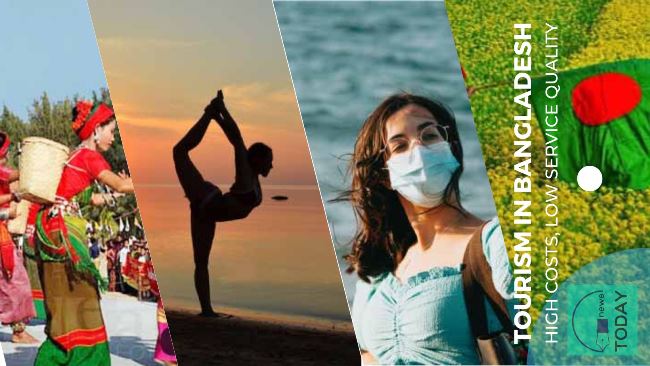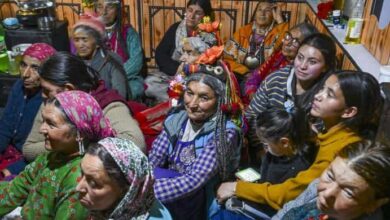Tourism in Bangladesh: High Costs, Low Service Quality

Despite its stunning natural landscapes and diverse attractions, Bangladesh has struggled for years to unlock its full tourism potential. High costs paired with low-quality services place it at a disadvantage compared to other destinations in the region.
Both Local and international travelers alike have expressed concerns that tourism providers in Bangladesh often lack professionalism and focus on short-term gains. Many say that instead of prioritizing customer satisfaction through comfortable and reasonably priced experiences, providers are more intent on immediate profit, overlooking the long-term advantages of building a loyal customer base.
The cost of tourism services here feels too high,”said Tamanna Akhand, senior vice-president at a private bank, reflecting on a recent family trip to a resort in Habiganj. For the same amount, you can enjoy much better facilities in many other countries.”
“There are some quality resorts and hotels in Bangladesh, but they often fail to deliver adequate service while charging significantly more than neighboring countries,” she added.
Tamanna cites neighboring countries like India, Sri Lanka, Nepal, and Thailand, which attract far more international tourists each year than Bangladesh. Despite efforts, Bangladesh’s tourism industry has struggled to draw significant numbers of foreign visitors.
As a result, the sector now relies heavily on domestic tourism. With a growing economy, an estimated 8 to 9 million local travelers, primarily middle-class, visit popular destinations within the country each year. This surge in local tourism has significantly boosted income for service providers and increased the sector’s contribution to the Bangladeshi GDP
The number of tour operators catering to local tourists is steadily rising in Bangladesh. Taufiq Rahman, who has been running his tour agency, Journey Plus, for the past year and a half, believes that the high costs in the country’s tourism sector are primarily driven by syndicate practices within the industry.
“There are various syndicates operating in popular tourist destinations. For instance, if you plan a trip to the Sundarbans during a moonlit night, you’ll notice that the fares for all boats increase simultaneously. This trend is also prevalent in areas like the Haor region, Sajek Valley, and Rangamati. Such practices are discouraging both tourists and tour operators,” he said.
A significant factor driving up the cost of holidays in Bangladesh is the high price of hotel accommodations.
In Cox’s Bazar, the country’s top tourist destination, the rent for a standard hotel room can reach at least USD 60 or Tk 6,500 during the peak season. With this amount, travelers can stay in a three-star hotel in countries like Thailand, Malaysia, or even some European nations, often including a complimentary buffet breakfast.
Additionally, excessive travel expenses and high food costs are adding to the overall expense of tourism Dhaka in Bangladesh. For example, a tourist group wishing to explore Kaptai Lake in Rangamati may need to pay around Tk 5,000 to hire a boat. Alternatively, if individuals join a shared boat ride with 20 others, the cost per person can range from Tk 700 to 1,000.
It’s also challenging for two people to enjoy a decent lunch or dinner at a good restaurant for under Tk 1,000. In contrast, a family of tourists in Thailand can enjoy a full meal for as little as THB 265 (roughly Tk 800).
Local tourists typically plan their trips around specific times of the year, often choosing the winter season when the weather is more favorable, and schools are closed. Additionally, many travelers opt for trips during the Eid holidays. Consequently, these peak seasons result in overcrowded tourist spots and increased travel costs.
“Most local tourists plan their trips during the peak season, leaving tourist spots quiet during the rest of the year. This reliance on peak seasons for business means higher profits for traders but also drives up the cost of tourism services, leading to a less pleasant experience for holidaymakers,” said Prof. Santus Kumar Deb, Chairman of the Department of Tourism and Hospitality Management at the University of Dhaka.
According to him, a greater focus on attracting tourists during the off-season, such as in summer or monsoon, could help reduce the issue of inflated prices.




